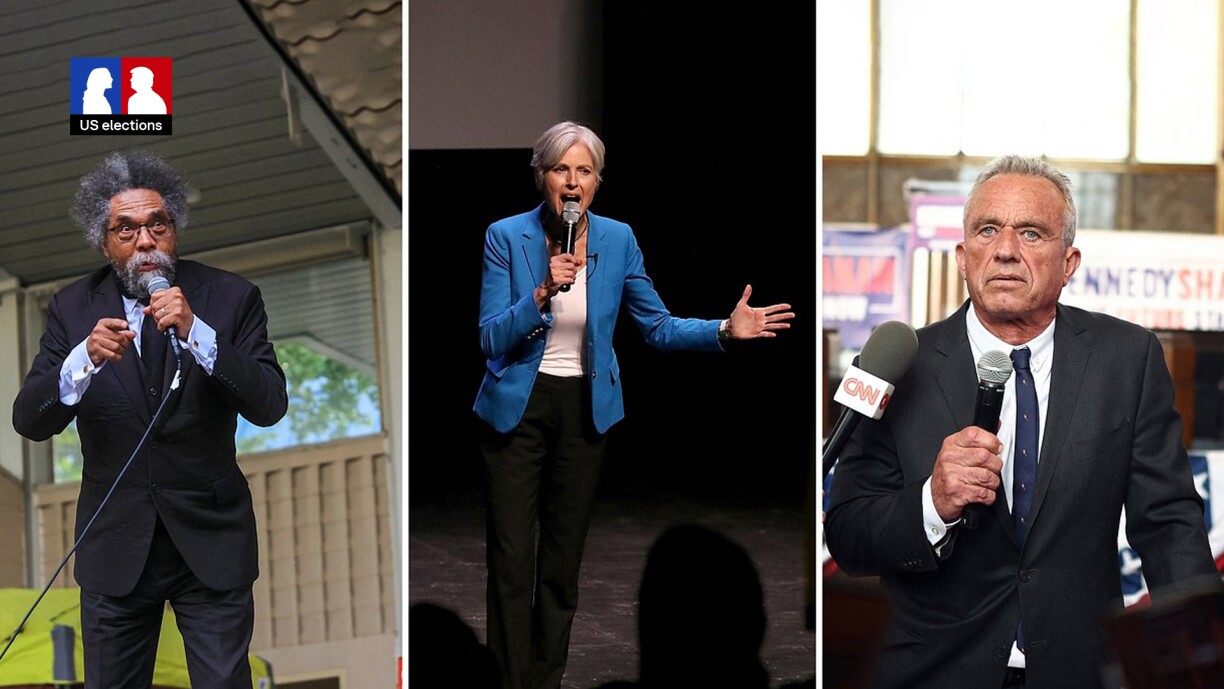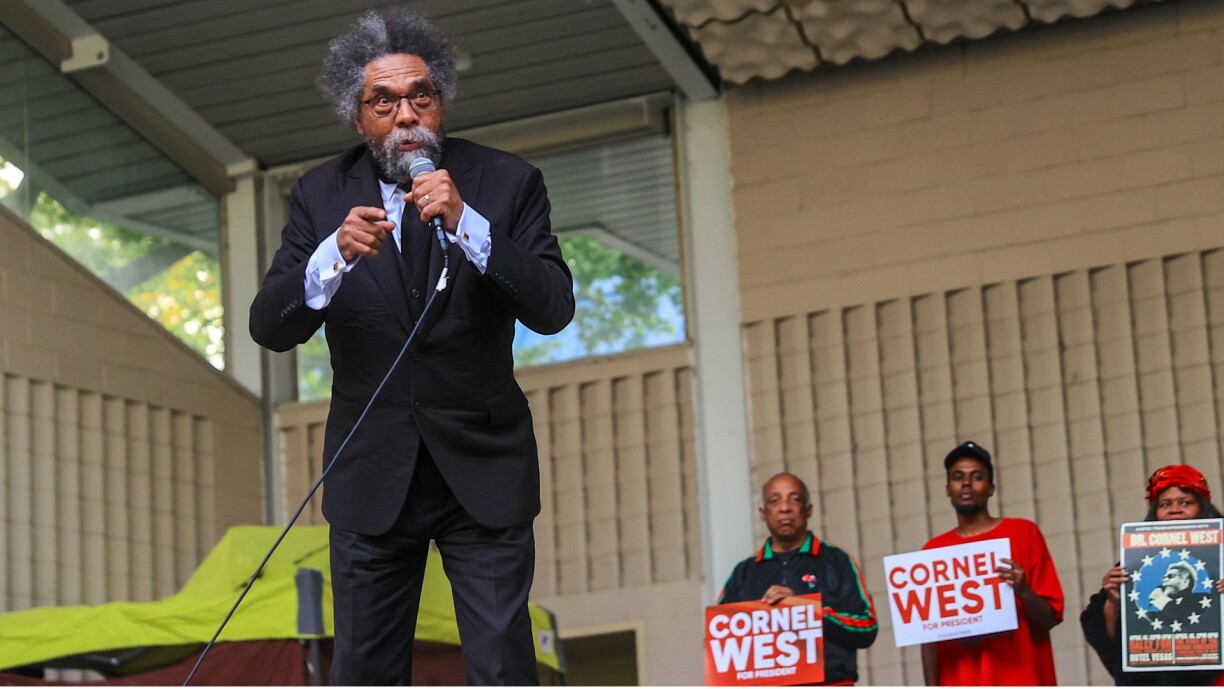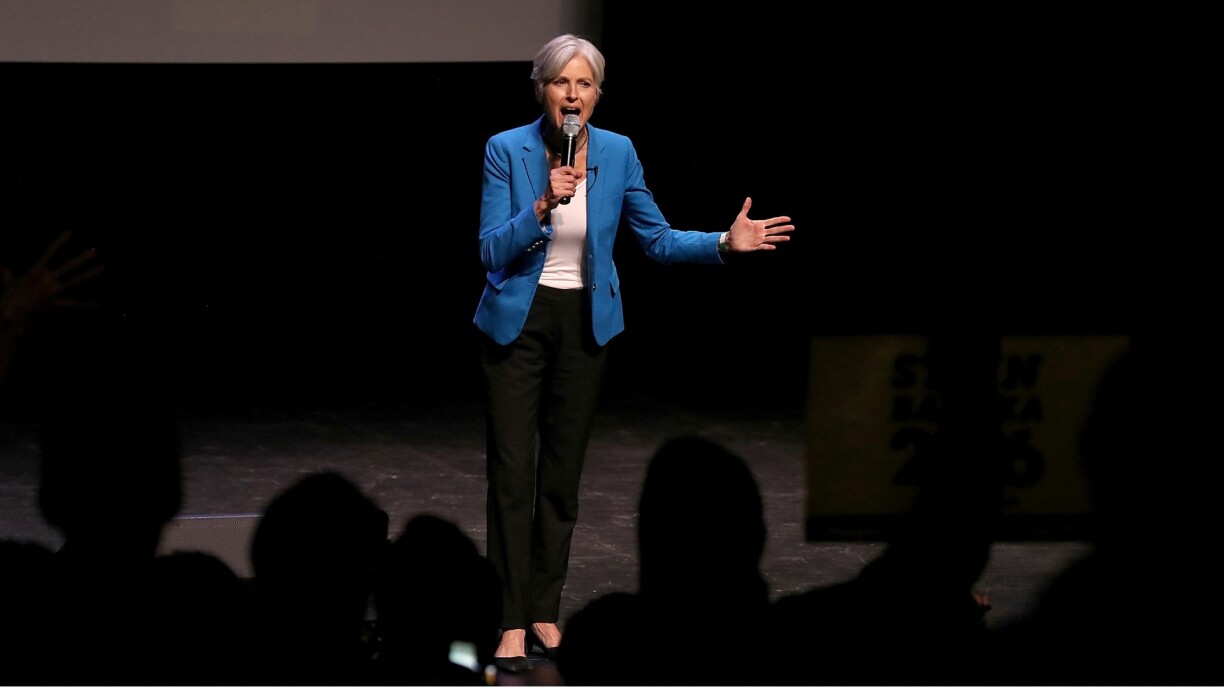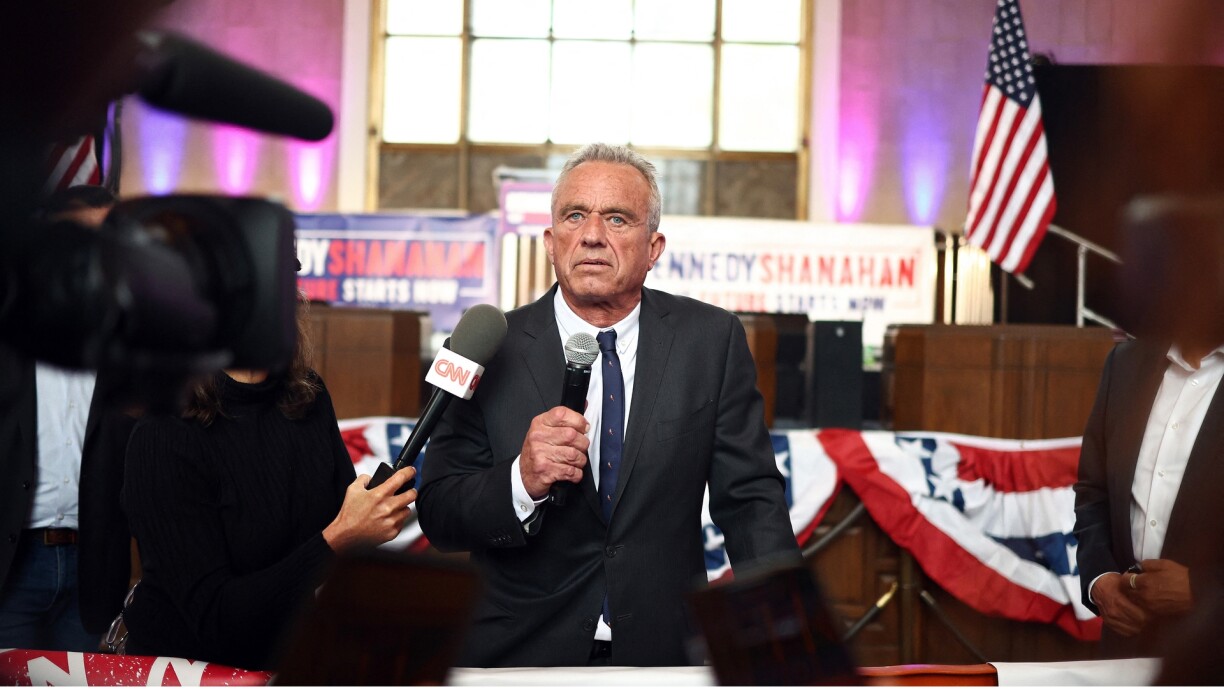
The sixth and final part in our explainer series delves into the role of third-party candidates in US presidential elections and examines the potential impact of their 2024 White House bids on the Democratic and Republican campaigns. From historic kingmakers who split votes to contemporary contenders Cornel West, Jill Stein, and RFK Jr, we explore how third-party voices have influenced electoral outcomes and how this election may follow suit.
The Democratic and Republican parties have become the two dominant forces in US politics through a mix of historical developments, institutional advantages, and strategic adaptation. Originally, America’s political landscape was more fluid with various parties, but by the Civil War, the Democrats and Republicans had solidified as major players, with Republicans taking a stronghold in the industrial North and Democrats dominating in the agrarian South.
Over time, the winner-take-all electoral system in Congress and presidential elections favoured a two-party model, as only parties capable of commanding broad support can realistically win seats. This structure, combined with significant fundraising networks, extensive party organisations, and a polarised media environment, has reinforced their dominance, making it challenging for third parties to compete. Throughout the 20th and 21st centuries, both parties have adapted to demographic, social, and economic changes, realigning their platforms to reflect the evolving values of their constituencies and keeping the focus squarely on the binary choice between them.
So while there are more parties in the US than just the Democrats and Republicans, the presidential race is usually fought out primarily between those two. That is not say, however, that there are no notable attempts from third-party candidates at making a run for the Oval Office. And in some cases, a third candidate – despite loosing – has even gained enough traction to significantly influence the outcome of the presidential election by splitting the vote and thereby allowing one candidate to win with a plurality rather than a majority of Electoral College votes.
Another significant hurdle in the path of most third-party candidates is ballot access, which refers to the ability to appear on the official voting ballots across the United States during an election. Gaining access is essential for any candidate aiming to secure widespread voter support, as it enables voters to see and select their name on the ballot rather than having to write it in manually.
The requirements to achieve ballot access vary significantly by state, with each state imposing specific legal and procedural criteria, such as gathering a certain number of petition signatures or meeting registration deadlines. Candidates representing major parties typically secure ballot access more easily due to established infrastructure and recognition, while independent or third-party candidates often face additional hurdles and must complete each state’s requirements individually to gain visibility in that state. Consequently, achieving full ballot access nationwide is a logistical and financial challenge, yet critical for candidates seeking to compete effectively in the presidential race.
In the 2024 White House race, three third-party candidates are projected to draw some votes from the two major parties, though only election day will tell whether or not either of them really ends up tilting the balance toward the Democratic or Republican ticket.
Dr Cornel West, an American philosopher, academic, and activist, is renowned for his progressive views on racial justice, economic equality, and political reform. His career spans over four decades, including teaching positions at prestigious institutions like Harvard, Princeton, and Yale, and a prolific authorship on topics related to social justice and democracy. Known for his impassioned critique of systemic injustices, West has advocated for movements addressing police reform, racial discrimination, and economic disparity.
West launched his 2024 White House bis with the People’s Party before transitioning to the Green Party, and ultimately deciding to run as an independent candidate. His campaign operates under the slogan ‘Justice is what love looks like in public’, with goals such as improving healthcare provisions, addressing climate change, and redistributing funds from military expenditures to domestic programmes. He selected activist Melina Abdullah as his running mate, hoping to strengthen his appeal to marginalised communities and bring attention to issues he believes mainstream parties ignore.
Despite his active outreach, West arguably remains a long-shot candidate, polling in low single digits nationally and lacking traction in critical battleground states. His ballot access situation is mixed: he is on the ballot in 19 states, including some battlegrounds like Michigan and Florida, where support from a third-party could influence the overall results. In 27 additional states, voters may write him in, giving him theoretical access to 501 electoral votes, though these options often face procedural hurdles that could limit their impact.

Dr Jill Stein, the Green Party’s 2024 presidential candidate, is a physician and long-time environmental activist. Known for her prior presidential bids in 2012 and 2016, Stein is running her campaign under the ‘People, Planet, Peace’ slogan, prioritising anti-war stances, economic reform, and climate action. Her platform advocates for universal healthcare, education reform, and labour rights, with an emphasis on shifting resources away from what she describes as corporate and military interests toward public welfare and environmental preservation. As her running mate she chose historian and professor Butch Ware, who specialises in the history of colonialism, empire, and social justice.
As of late October 2024, Stein has successfully secured ballot access in 37 states, which collectively hold 420 electoral votes. In several swing states, including Nevada, Democrats have legally challenged her inclusion, concerned that she might draw votes away from Kamala Harris. The US Supreme Court recently upheld Nevada’s decision to exclude Stein from the ballot due to technical issues with petition certifications, a victory for Democrats aiming to maintain control over votes in pivotal states.
Polls indicate that while Stein is unlikely to win any states, her presence on the ballot could influence close races, especially given her focus on traditionally Democratic-leaning issues. This has raised concerns about her potential “spoiler” effect, similar to her impact in the 2016 election, where some analysts believe she contributed to Hillary Clinton’s loss in swing states.

Robert F Kennedy Jr is likely the third-party candidate that has garnered the most attention in the 2024 White House race. An environmental lawyer and prominent member of the Kennedy family, RFK Jr – as he is commonly known – initially sought the Democratic nomination, positioning himself as a critic of the two-party system and gaining attention for his opposition to vaccine mandates and publicly criticising President Joe Biden.
However, due to limited success in gaining traction within the Democratic Party, he eventually transitioned to an independent candidacy in October 2023. Kennedy’s campaign resonated with many disillusioned voters, drawing both Democratic and Republican supporters, though it faced challenges in ballot access across multiple states. His running mate is Nicole Shanahan, a Silicon Valley attorney and philanthropist with a background in legal tech, who shares his focus on environmental health and critiques of corporate power.
By August 2024, Kennedy, in a surprise move, suspended his campaign and endorsed former President Donald Trump, aiming to influence the election by removing his name from ballots in crucial swing states while maintaining it in others, including Oregon. This move aims to attract votes away from Democratic nominee Kamala Harris, potentially benefiting Trump in tight races.
While his name remains on some ballots, Kennedy publicly announced his intention to support Trump’s administration if he wins, suggesting he would join Trump’s transition team, marking an unusual alliance between a prominent Kennedy family member and the Republican front-runner.
